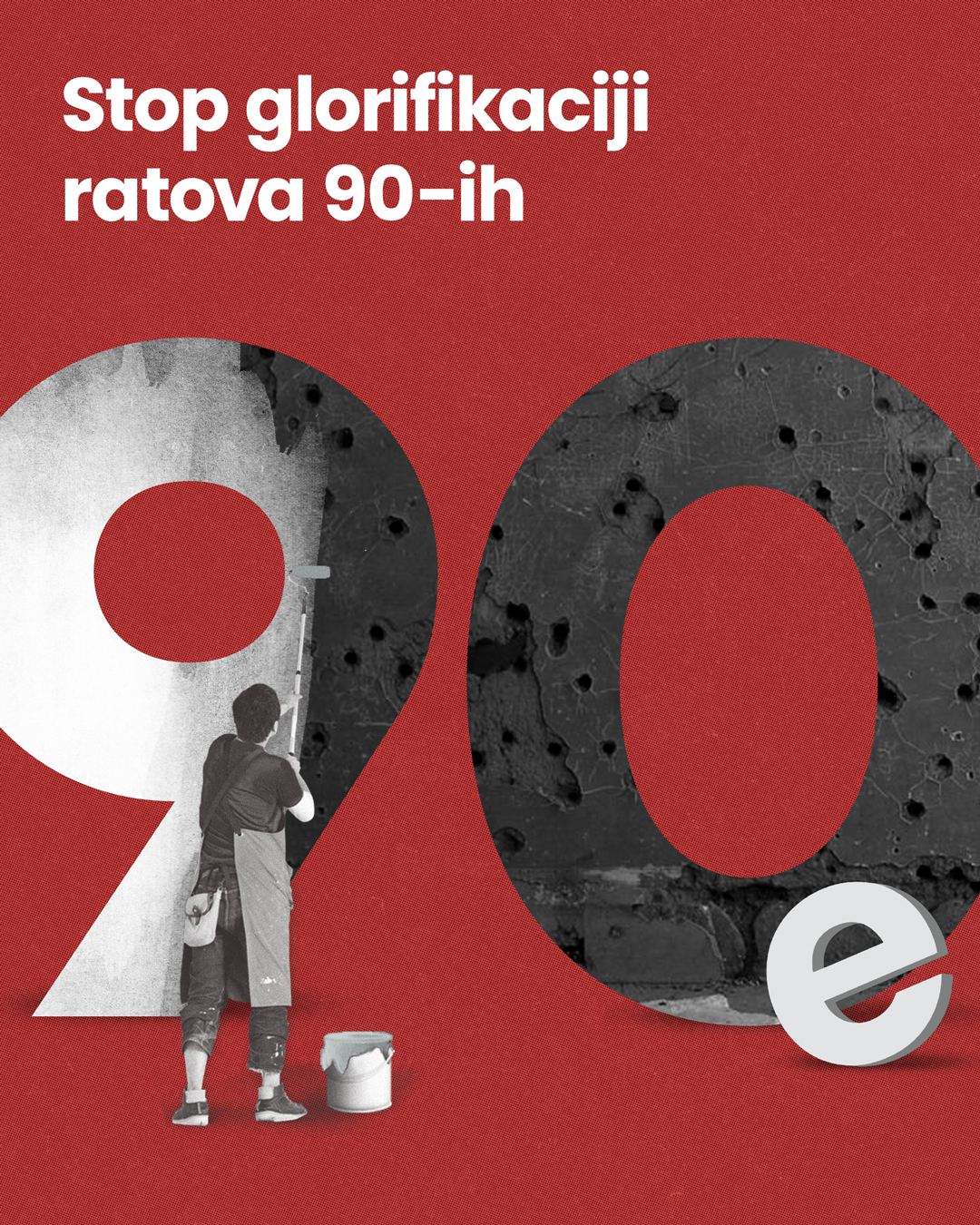Civil society organizations and civic activists express strong opposition to the decision of the Council for Naming Neighbourhoods, Streets, and Squares of the Capital City of Podgorica to name a street after Darko Vlahović, a junior sergeant of the Yugoslav People’s Army (JNA), who was killed on 28 December 1991 on the territory of the Republic of Croatia.
We call on the Ministry of Culture and Media to apply the law and put an end to the irresponsible practice of (re)naming streets, which serves only a narrow political and ideological agenda instead of the public interest.
The proposal to name the street was submitted by the Association of Veterans of the Wars of the 1990s of Montenegro, represented by Radan Nikolić. In the proposal, Vlahović is described as a “prominent figure” for his participation in battles against the “Croatian paramilitary” near Karlovac. It further explains that his unit was involved in combat operations in Kordun, and that shortly before his death on 28 December 1991, he destroyed an enemy tank – an act the proposers interpret as a “heroic deed” and “manifested patriotism in the defence of the homeland,” which “testifies to the last generation of JNA conscripts worthy of the war glory of their ancestors.”

We find particularly problematic the explanation that Vlahović “died for the homeland,” even though it is clear that he was at the time on the territory of the sovereign state of Croatia, which had already declared independence on 25 June 1991. Such formulations distort historical facts and represent a dangerous relativization of the events of the wars of the 1990s, the consequences of which we still feel today. The concept of the “homeland”in this case was misused as an excuse for military campaigns, behind which the state sent its young people to die in a senseless and unnecessary war, which brought no good and in which they should never have been sent.
Additionally, it is important to consider the broader historical context, particularly the role of the Yugoslav People’s Army (JNA), which at that time acted as an aggressor. The JNA was an occupying force whose actions caused suffering and destruction across Croatia. When Vlahović was killed, in late December 1991, the siege of Dubrovnik was in full swing, including the shelling of the protected Old Town – a UNESCO World Heritage Site. Just a month earlier, the siege of Vukovar had ended, during which more than 2,700 people were killed, 22,000 expelled, and citizens lived for 56 days without water, electricity, or basic means of survival. Although some JNA barracks were blockaded or even attacked by Croatian forces, this does not diminish the responsibility of the JNA, whose actions instilled widespread fear and insecurity among the citizens of Karlovac, who were subjected to shelling and armed attacks.
We also remind that the decision to deploy the JNA in Croatia was not made by the legal and legitimate Presidency of the SFRY, the only constitutional body responsible for the army, as it was blocked at the time.
While understanding the grief of the families and friends of many young people who lost their lives due to the expansionist policy of the state at that time, it is important to know why they died in the war and who bears primary responsibility for that war.
We believe that such a move by the Council represents a gross violation of the Law on Memorials and an act of institutionalized historical revisionism. It is yet another attempt to alter the character of the wars of the 1990s and the role of the JNA in them through symbolic spaces – streets and squares.
The Law on Memorials precisely defines the criteria for proclaiming a “prominent figure,” which can only be a person who: 1) is particularly deserving for the state, social, economic, scientific, or cultural development of Montenegro or a specific area or place in Montenegro; 2) whose work has international historical, scientific, cultural, humanitarian, or sporting significance; 3) was an organizer or prominent participant in a liberation war, uprising, or movement; 4) distinguished themselves in the fight against fascism. The Law also clearly stipulates that it is not permitted to erect a memorial to: a person who was a collaborator of an occupier, its ally or supporter; a person who advocated fascist, chauvinistic, or Nazi ideas or ideologies; or a person who played a negative role in the history of Montenegro or humanity.
Unfortunately, this initiative is not an isolated case but represents the continuation of a policy of naming streets after members of the JNA and the Yugoslav Army – such as Branko Krvavac, Vukoman Tešović, Captain Đurko Bojović, and pilot Eldin Hrapović – which began in Pljevlja and is now being extended to the territory of the Capital City. This points to a pattern of dangerous and persistent policy which, under the guise of “patriotism,” affirms a war-torn past that has already cost Montenegro dearly and led it into international isolation.
Such actions also harm Montenegro’s foreign policy position. Last year, precisely because of strained relations with Croatia, Montenegro did not close Chapter 31 (Foreign, Security, and Defence Policy), which also includes good neighbourly relations. This sends the message that Montenegro is not ready to face its own past and is consciously provoking neighbours and EU member states. Montenegro must show that it also belongs to the European Union in terms of values, which includes respecting laws, human rights, and freedoms, along with a responsible attitude toward the past.
Filip Kuzman, Antifascists of Cetinja
Tea Gorjanc Prelević, Human Rights Action (HRA)
Daliborka Uljarević, Centre for Civic Education (CCE)
Ervina Dabižinović, Centre for Women’s and Peace Education ANIMA
Velija Murić, Montenegrin Committee of Lawyers for Protection of Human Rights
Demir Ličina, Association Štrpci – Against Oblivion
Miloš Vukanović, Association of History Educators of Montenegro HIPMONT
Dina Bajramspahić, civic activist
Jovana Marović, civic activist
